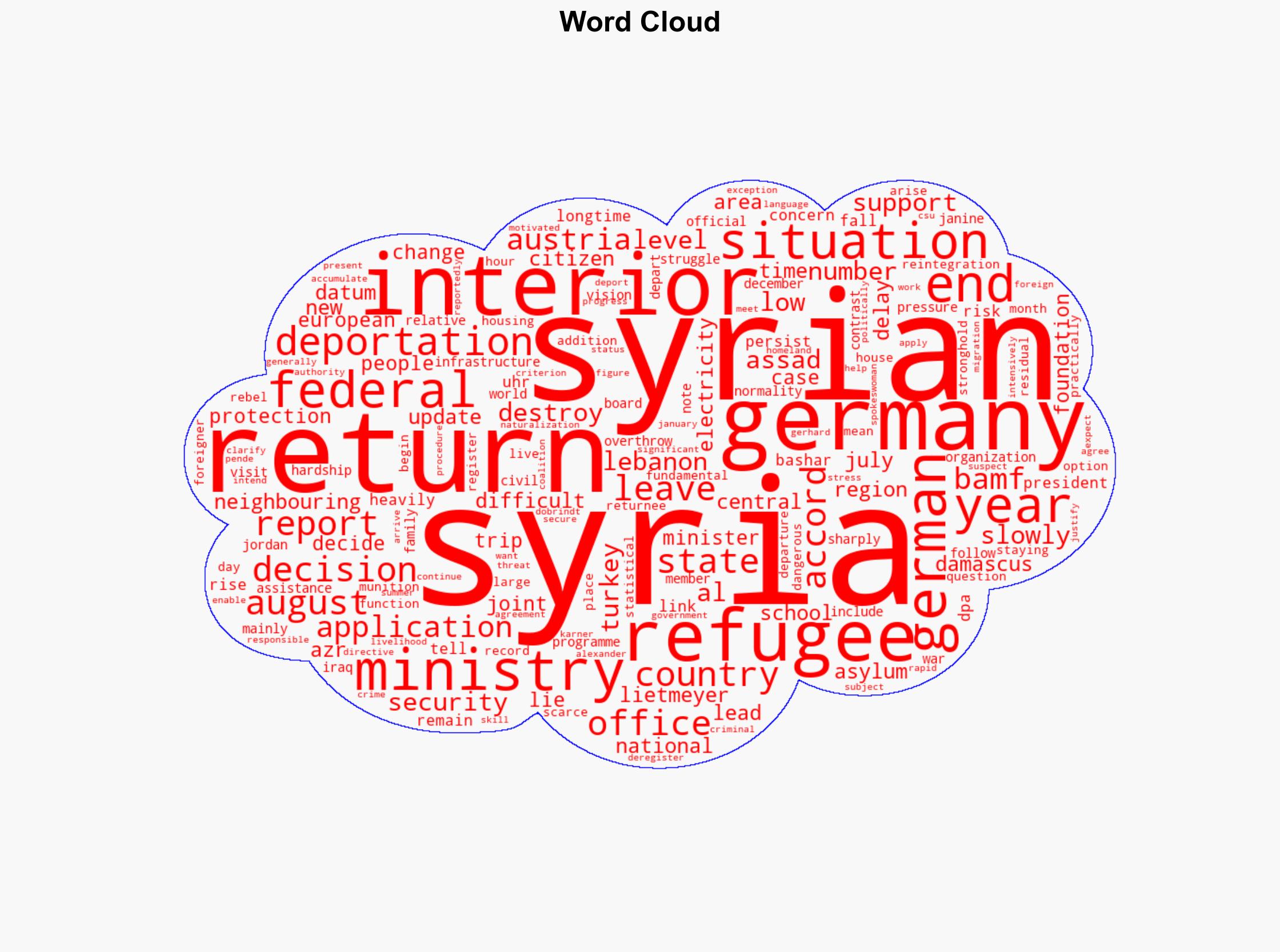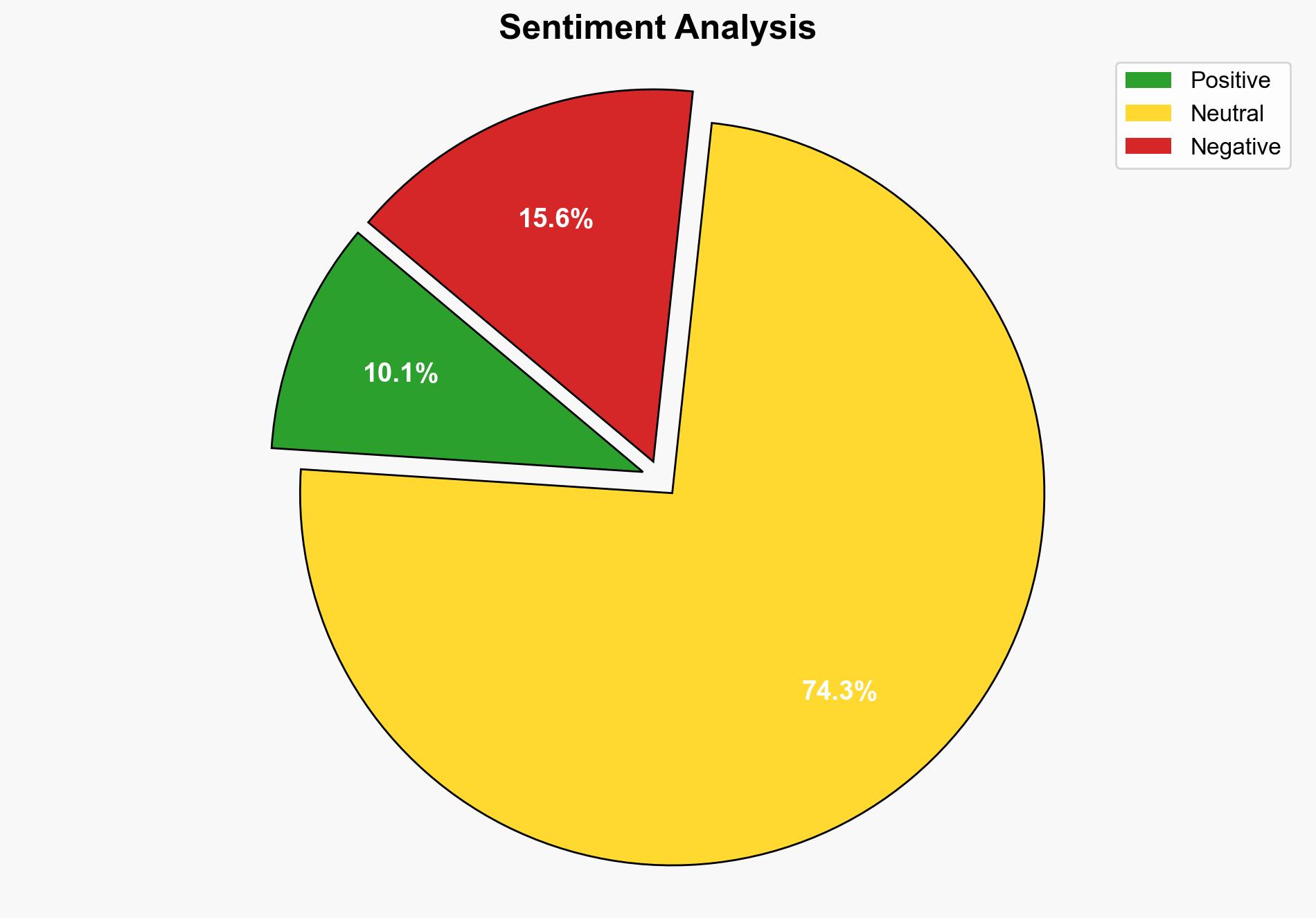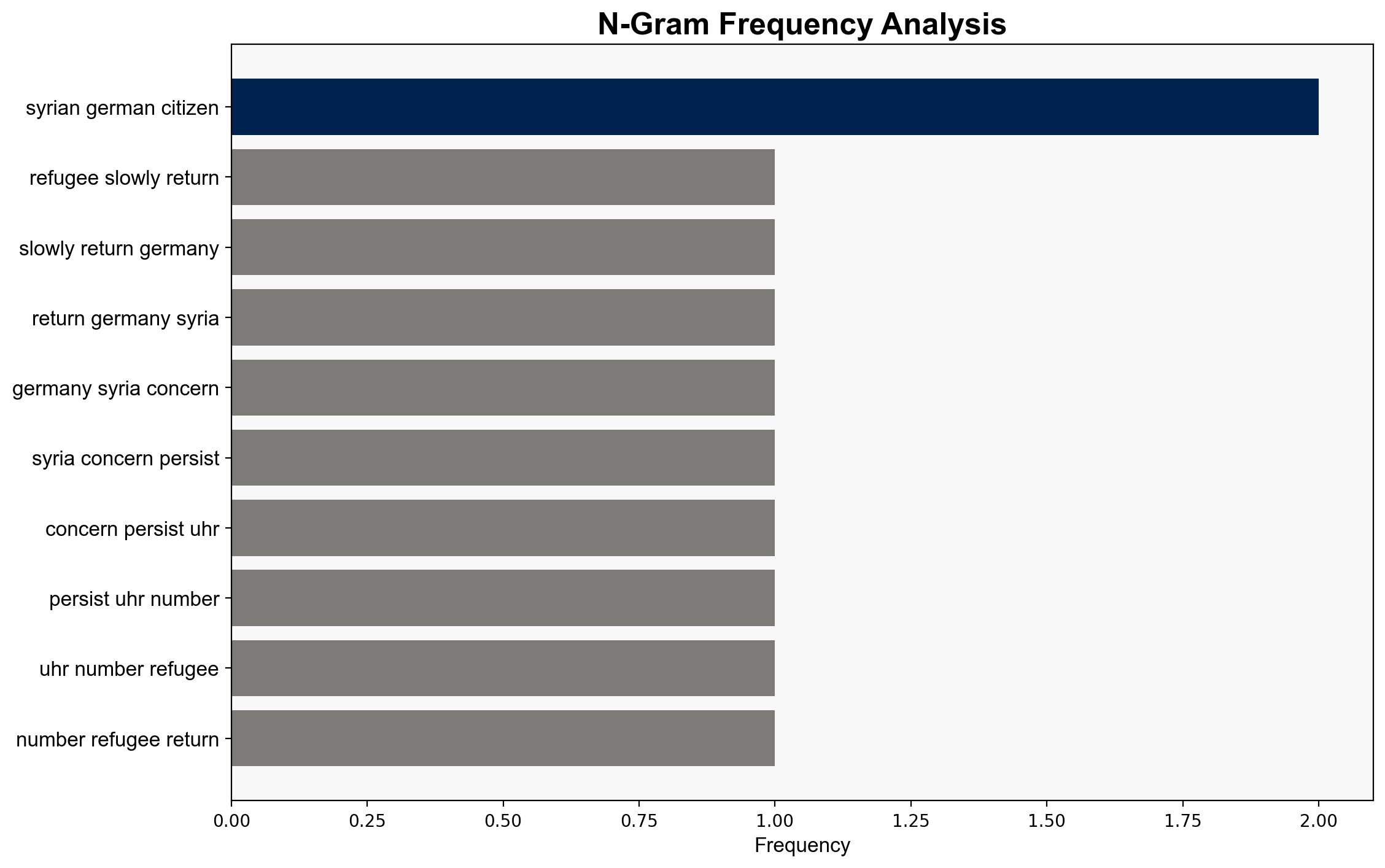Refugees slowly return from Germany to Syria but concerns persist – Dpa-international.com
Published on: 2025-09-07
Intelligence Report: Refugees Slowly Return from Germany to Syria but Concerns Persist – Dpa-international.com
1. BLUF (Bottom Line Up Front)
The strategic judgment is that while the return of Syrian refugees from Germany to Syria is occurring, it remains limited due to persistent security and infrastructure challenges in Syria. The most supported hypothesis is that returns are primarily driven by external pressures rather than voluntary repatriation. Confidence level: Moderate. Recommended action: Monitor the situation closely, focusing on the humanitarian conditions and geopolitical implications of forced returns.
2. Competing Hypotheses
Hypothesis 1: Refugee returns are primarily voluntary, driven by improved conditions in Syria and personal motivations to reunite with family or return to familiar environments.
Hypothesis 2: Returns are largely influenced by external pressures, including policy changes in host countries and deteriorating conditions for refugees in neighboring countries.
Using ACH 2.0, Hypothesis 2 is better supported by the evidence of low return numbers linked to security risks, destroyed infrastructure, and reports of official pressure on refugees in countries like Lebanon and Turkey.
3. Key Assumptions and Red Flags
Assumptions: Hypothesis 1 assumes that conditions in Syria have improved sufficiently for safe return, which is contradicted by reports of ongoing security and infrastructure issues. Hypothesis 2 assumes that host countries are actively seeking to reduce refugee populations.
Red Flags: Inconsistent data on the actual number of returns and the motivations behind them. Potential bias in reports from host countries aiming to justify deportation policies.
4. Implications and Strategic Risks
The return of refugees under pressure could exacerbate humanitarian issues in Syria, potentially destabilizing regions with limited resources. This situation could lead to increased tensions between host countries and international bodies advocating for refugee rights. Geopolitically, forced returns might strain relations between European countries and Syria, especially if human rights violations are reported.
5. Recommendations and Outlook
- Monitor refugee conditions in host countries and Syria to anticipate potential surges in forced returns.
- Engage with international organizations to ensure refugee rights are upheld and humanitarian aid is directed to critical areas in Syria.
- Scenario projections:
- Best Case: Improved conditions in Syria lead to voluntary returns and successful reintegration.
- Worst Case: Mass forced returns lead to humanitarian crises and regional instability.
- Most Likely: Continued low-level returns with ongoing international debate over refugee policies.
6. Key Individuals and Entities
Janine Lietmeyer, Alexander Dobrindt, Gerhard Karner, Nancy Faeser.
7. Thematic Tags
national security threats, refugee crisis, geopolitical tensions, humanitarian issues





